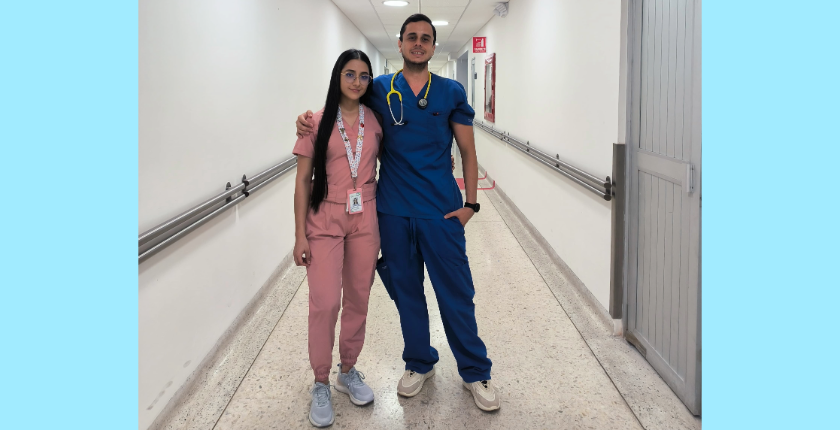Blog
Research from the Cali headquarters
- 27 febrero, 2024

Researchers at the María Cano University Foundation in the capital of Valle del Cauca have developed a hypothesis of great interest regarding the compensatory mechanisms that are activated at a systemic level to counteract the adverse effects of a rare malformation. In their study on persistent arterial trunk, a congenital heart condition, Lizeth Dayana Noreña Buitrón, a graduate of the Physiotherapy program, and physiologist professor and researcher José Luis Estela Zape, have carried out a thorough investigation.
Mentioning that this malformation is characterized by the presence of a defective ventricular septum, a single trunk valve and an arterial trunk shared between the pulmonary artery and the aorta, which causes an inadequate mixing of arterial and venous blood, thus compromising blood circulation, the distribution of nutrients and oxygenation in the body, due to a bidirectional cardiac shunt, predominantly from left to right.
Researchers suggest the existence of similar biomolecular responses in the cardiovascular, pulmonary and renal systems, leading to a reduction in nitric oxide production and the induction of vasoconstrictor responses. Furthermore, at the liver level, the generation of growth factors and the initiation of angiogenesis processes are observed to improve blood perfusion. Likewise, in the brain, enzymes are activated to increase blood flow and ensure adequate delivery of oxygen and essential nutrients.
However, despite these compensatory mechanisms, they appear to fail to completely neutralize the clinical manifestations, resulting in a number of significant health problems, such as pulmonary hypertension, heart failure, hepatomegaly, organ hypoperfusion, and neurological deficits. These various factors converge to shape a complex cardiac condition that triggers adaptive responses in the body, representing a medical challenge of great relevance and with possible serious implications.
It should be noted that the results of this research have been published in the renowned: «Journal of Research and Innovation in Health Sciences» by María Cano.
Click here to read the article
#MásMaríaCano
